Search Results
Showing results 1 to 20 of 27

Low-Tech Water Filter for High-Impact Clean
Source Institutions
In this activity, learners consider the water features they might enjoy at a community park--a pond, brook, water playground (or "sprayground"), or pool--and what happens to the water over time.

Can Nutrients in Water Cause Harm?
Source Institutions
In this water pollution activity, learners create pond water cultures and investigate the effects of adding chemicals or natural nutrients.

Differing Densities: Fresh and Salt Water
Source Institutions
In this activity, learners visualize the differences in water density and relate this to the potential consequences of increased glacial melting.

Water Clean-up
Source Institutions
This is an activity (located on page 3 of the PDF under Water Clean-up Activity) about the use of reduction agents to decontaminate ground water.
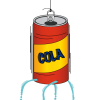
Pop Can "Hero Engine"
Source Institutions
In this activity, learners build water-propelled engines from soft drink cans.
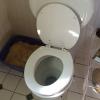
In the Toilet
Source Institutions
This activity explores the basic workings of a siphon, which is the core technology that makes toilets work.
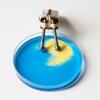
Indicating Electrolysis
Source Institutions
Electrolysis is the breakdown of water into hydrogen and oxygen. This Exploratorium activity allows learners to visualize the process with an acid-based indicator.
Ships Ahoy!
Source Institutions
Design a vessel that tests the limits of wind power given a set of off the shelf and recycled materials.
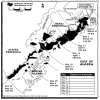
Fragile Waters
Source Institutions
In this activity (on pages 18-29) learners explore the impact of the March 24, 1989 oil spill in Alaska caused by the Exxon Valdez tanker.

Draggin' Boats
Source Institutions
Learners design, build, and test models of "dragon boats" made from up to three milk cartons.
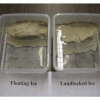
Global Climate Change and Sea Level Rise
Source Institutions
In this activity, learners practice the steps involved in a scientific investigation while learning why ice formations on land (not those on water) will cause a rise in sea level upon melting.
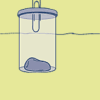
Rescue Mission
Source Institutions
In this hands-on activity, learners use the steps of the design process to create a hook to rescue a "space capsule" from the water.
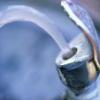
Water Fountain
Source Institutions
In this activity, learners explore how a hydraulic pump works. Learners work in teams to design and build a unique water fountain that employs a hydraulic pump.
What Does Life Need to Live?
Source Institutions
In this astrobiology activity (on page 11 of the PDF), learners consider what organisms need in order to live (water, nutrients, and energy).
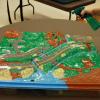
The Watershed Connection
Source Institutions
In this activity, learners interact with a 3-D model of a watershed to better understand the interconnectedness of terrestrial and aquatic environments.
Making An Impact!
Source Institutions
In this activity (on page 14 of PDF), learners use a pan full of flour and some rocks to create a moonscape.

Pipeline Challenge
Source Institutions
In this activity, learners explore how engineers develop pipeline systems to transport oil, water, gas, and other materials over very long distances.

NEWspaper: Make Your Own Paper
Source Institutions
Learners make their own paper using old newspaper. Learners can make their paper colorful by adding construction paper.

Recycling Paper
Source Institutions
In this crafty chemistry activity (on page 2 of the PDF), learners make their own paper from used paper they may have otherwise thrown away.
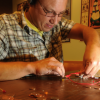
Build a Battery
Source Institutions
Learners make a simple battery out of "sandwiches" of aluminum foil, pennies, and a salt water-soaked paper towel.
